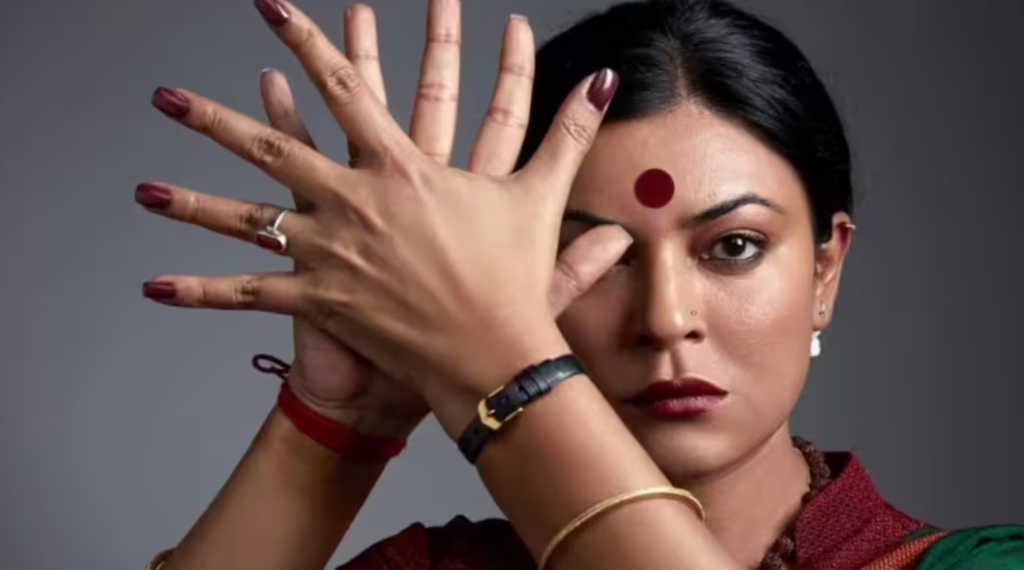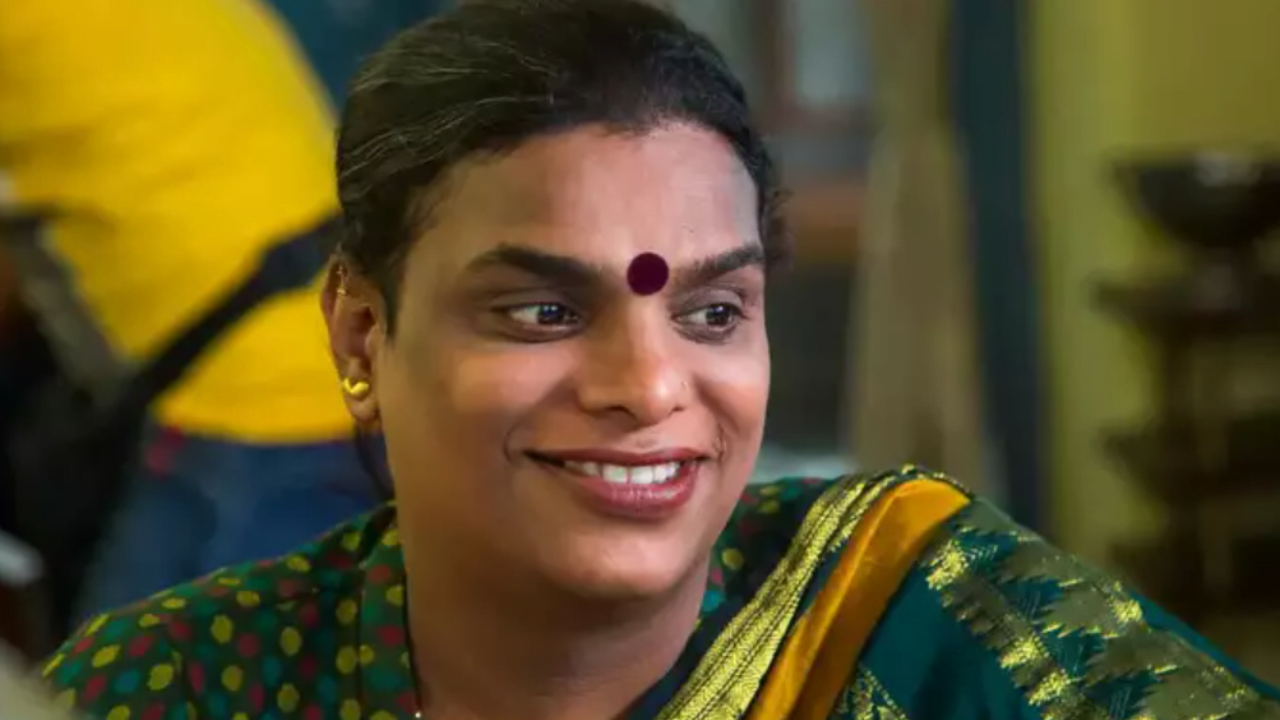Shreegauri Sawant is the first transgender woman in India to have adopted a child. Her trans activism argues that biological, social, or cultural imperatives should not confine motherhood. Instead, it should emerge as a conscious and intentional choice that individuals embrace in their day-to-day actions.
Shreegauri Sawant is a transgender activist and social worker who was one of the key petitioners in the landmark National Legal Services Authority v. Union of India (2014) judgement, also known as the NALSA judgement that recognised the right of hijras, eunuchs and other transgender people to their “self-identified gender,” granting them legal recognition as male, female, or third gender. This judgement aims to safeguard their fundamental rights enshrined in Part III (Articles 12-35) of the Indian Constitution, including the right to equality (Article 14), which prohibits discrimination based on factors like religion, race, caste, sex, or place of birth, amongst others.
Born Ganesh into a Maharashtrian family, she recounts a childhood marred by a profound sense of estrangement – from family, school, and society. At seventeen, she felt compelled to flee the confines of her home, eventually finding refuge with the Humsafar Trust, a stalwart organisation battling the prejudice, violence, and discrimination faced by LGBTQ communities. Her activism extends further with the founding of Sakhi Char Chowgi Trust, fostering safe sex practices and offering solace to transgender individuals.
Shreegauri’s vision extends outwards with “Ajii ka Ghar,” a haven for the daughters of sex workers, offering education and the nurturing care of older transgender citizens. Shreegauri is the first transgender goodwill ambassador appointed by Maharashtra’s Election Commission. As one of twelve ambassadors, she emphasises, “Casting a vote is not just an individual’s constitutional right but a social responsibility. Every citizen who’s eligible to vote must do it responsibly.”
The viral Vicks ad
A 2017 Indian advertisement for Vicks catapulted Shreegauri Sawant into the public eye, garnering over 9 million views on YouTube. The ad presents a factual account of the maternal bond between Shreegauri and her adopted daughter, Gayatri. Gauri rescued Gayatri from a sex worker’s house in Mumbai after the child’s biological mother died from AIDS.
The advertisement effectively portrays the essence of motherhood – the acts of care, affection, security, and comfort a mother provides to her child. It evokes a range of emotions: the happiness, love, and warmth a child experiences under a mother’s care, in moments of sickness, enjoyment of preferred treats, receiving gifts, and even the simple act of hair oiling. It also captures the sadness of separation, as depicted by Gayatri’s emotional response when being left at a boarding facility.
The focus remains entirely on the actions of the mother, with Gauri herself remaining unseen throughout the ad. However, the emotional climax arrives when Gayatri, addressing the unseen figure, declares, “This is my mom. Isn’t she lovely?”
This advertisement confronts the viewer with a child’s nascent understanding of justice. The child, exposed to the theoretical concept of universal rights through her Civics book, juxtaposes this knowledge with the lived experience of her mother’s marginalisation. The closing message, emphasising Gauri’s act of raising Gayatri “against all odds,” underscores the ad’s call to address these inequalities.
There has been a subtle yet significant transformation within popular series and films from India, endeavouring to authentically reflect the lived experiences of hijra mothers in the nation. In Taali: Bajaungi Nahi, Bajwaungi (2023) is a biographical drama starring Sushmita Sen in the lead role, playing the transgender activist Shreegauri Sawant and her journey of motherhood. Directed by Ravi Jadhav and produced by Jio Cinema, the series skilfully disrupts conventional notions of motherhood, posing a poignant question: Why can’t a hijra assume the role of a mother?

The series does recommendable work in creating a vibrant thread with the audience by showing a trans mother selling jewellery to support abandoned children she has rescued. At the same time, the poem “Jhansi Ki Rani,” accompanies Gauri smashing patriarchal mandates of motherhood. The song gains new meaning, with the lines “budhey Bharat mein aayee phir se nayi jawani thi, gumee huee azadi ki keemat sabney pehchani thi,” (“In aged India, a new wave of youth was spreading, all the inhabitants of India had realised the worth of their lost freedom”) interpreted as present India recognising the lost freedom of hijras due to colonialism.
Likewise, “Khoob ladi mardani woh to Jhansi wali Rani thi” (“how gallantly she fought like a man against the British intruders: such was the Queen of Jhansi”), playing as Gauri faces Rani Jhansi’s portrait, subtly highlights the courage of a hijra mother fighting for rights in an unjust society. The series dispels any perceived unnaturalness that may be perceived when a hijra aspires to motherhood, asserting its natural and normal essence.
Shreegauri champions change
In her numerous TEDx presentations nationwide, Shreegauri eloquently sheds light upon the dire circumstances enveloping the lives of transgender individuals. She emphasises the critical role that limited access to education and employment plays in propelling many Hijras into begging and sex work.
Sawant argues that the contemporary presence of trans people on street corners and marketplaces soliciting alms is a direct consequence of societal neglect. Her talks deliver a pointed critique of the systemic barriers that perpetuate marginalisation, including a lack of educational opportunities, job training, healthcare access, and legal support, and the persistent issue of hijraphobia exposing the precariousness of their social and legal status.
She argues that in the past, India had a remarkable tolerance for a spectrum of sexualities and genders. Hinduism, far from being a monolithic culture, enshrined fluidity in the very figure of the Ardhanarisvara, Shiva himself in his half-woman form. Even the Mahabharata offered Shikhandi, a ruler who transgressed boundaries.
Further, she unveils the feminine incarnation of divinity in Mohini, an avatar of Lord Vishnu. Moreover, she underscores the influential roles held by hijras during the Mughal reign in India. However, with the arrival of the British, a stark shift occurred. Colonial impositions, imbued with a rigid binary of sex and gender, sought to erase this rich tapestry. The hijras, once integrated, were relegated to the margins.
Hijras have a long history of informally adopting transgender children, as evidenced by Gauri’s role as a parental figure to many. Ostracised by their biological families for challenging rigid gender norms, Hijras redefine family through non-biological kinship ties. She describes the dynamics of guru-chela relationships where motherhood holds undeniable significance, acting as both a cohesive force and a profoundly personal aspiration within Hijra communities.
Shreegauri defines herself as a “mother without a uterus,” in a Ted Talk, 2017. She argues that motherhood is a behaviour. It is an act, an ongoing engagement rather than an inherent state. Encouragingly, she extends this notion to encompass men, inviting them to embrace maternal roles. Sawant adeptly dismantles the limiting binary framework of gender, advocating for a broader understanding that transcends traditional male-female categorisations. Her act of queering the institution of motherhood in India manifested through gender nonconforming behaviours of hijra mothers, poses a formidable challenge to the entrenched gender essentialism inherent in heteronormative societal norms.
In essence, Sawant’s work calls for evaluating societal norms regarding motherhood in India. By advocating for a broader definition based on action and self-identification, she proposes a more equitable and representative framework for understanding this vital social role.
References:
- Indian ad with transgender mom stirs debate – and tears by Manveena Suri
- Matricentric Feminism: Theory, Activism and Practice – Andrea O’Reilly, Demeter Press (2021)
- Beyond Gender Binary | Gauri Sawant | TEDxIIMKashipur, https://youtu.be/HyvUF0Ehr8g
- The real story of Gauri Sawant, the trans ‘mommy’ from the Vicks video, is even more extraordinary by Binjal Shah https://yourstory.com/2017/04/gauri-sawant
- What made Aaji cha Ghar a necessity | Shreegauri Sawant | TEDxIBABangalore
- Mumbai Social Activist Becomes First Transgender Election Ambassador by Dainik Bhaskar, https://thelogicalindian.com/news/first-transgender-election-ambassador/
- Reddy, Gayatri (2005): With Respect to Sex: Negotiating Hijra Identity in South India, London: The University of Chicago Press.
- Sawant, Gauri (2017): Mein Maa Hoon | Gauri Sawant | TEDxHyderabad, https://www.youtube.com/watch?v=NjxwxZKgW3/




